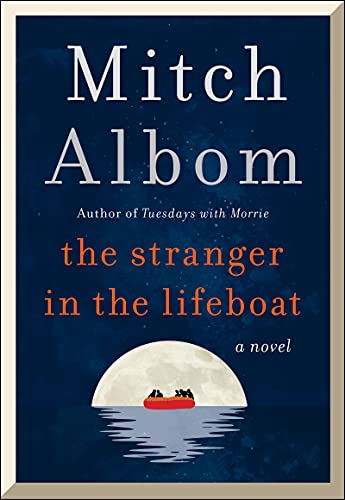
This sappy story provides little character development and further promulgates the chasms between rich and poor, privileged and victimized. A deckhand on Jason Lambert’s yacht, Benji keeps a journal while stranded in a life raft with other survivors. Some are workers like Benji, and some are rich and famous voyagers invited by the haughty, greedy, gluttonous Lambert. We learn through the journal entries that The Galaxy, a luxury yacht, was “blown up.” The journal provides the main story, and some chapters, which take place later in time, feature a man named Rom Rosh, who discovered the empty raft and journal off the coast of Africa. Rom Rosh, a name that seems to relate to Rum Rosh, a name for God, brings his discovery to a local police officer, LeFleur. LeFleur, as well as the survivors, have life lessons to learn.
I heard Albom speak at an event sponsored by a local bookstore and his words and presentation were quite inspirational. Unfortunately, his live performance message conveyed his themes and philosophy better than the words of his book. Albom wanted the reader to consider what we ask of God and how we would react if the Lord walked among us. He also wanted us to realize that godliness exists in the meekest human beings and creates a mute character, Alice, among the survivors in the lifeboat. Finally, Albom wanted us to recognize that our prayers are often answered in unexpected ways, and it is crucial to remain open to disguised heavenly gifts. The lifeboat characters are stereotypical, and the vignettes about the worldly people lost when the yacht sank are awkward. Yet they highlight cultural values in a media-driven world.


